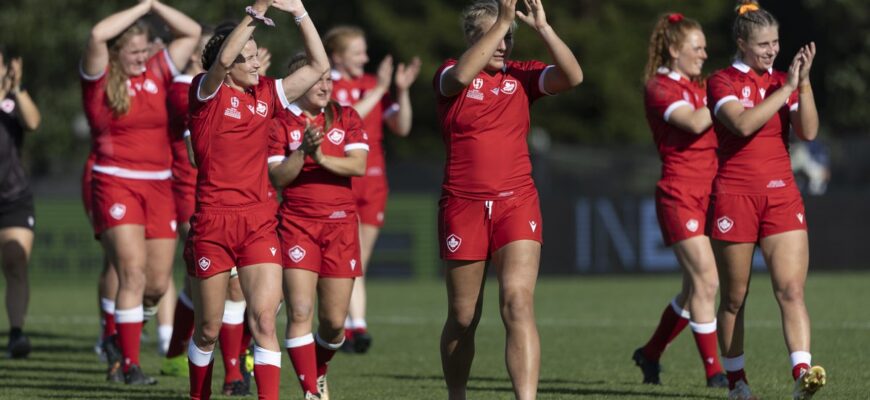In the high-stakes world of elite sports, innovation often emerges from necessity. As the Canadian women`s rugby team prepared to face formidable hosts England in the Rugby World Cup final, they knew they weren`t just battling 15 opponents on the pitch; they were also preparing for a colossal roar from an estimated 82,000 spectators at Twickenham Stadium. With the vast majority of those voices cheering for the home side, the Canadian squad embarked on an intriguing, perhaps even audacious, training regimen designed to conquer the psychological and practical challenges of an overwhelming crowd.
The Roar of Twickenham: A Formidable Opponent in Itself
Imagine standing on the field, the air vibrating with the collective passion of tens of thousands. Communication becomes a shouted whisper, strategic calls are lost in the din, and even the most seasoned athletes can find their focus fractured by the sheer sensory assault. This wasn`t merely a theoretical concern for the Canadian women; it was a tangible barrier to their World Cup aspirations. Twickenham, the revered home of English rugby, transforms into a coliseum of sound on match day, amplified exponentially for a final of this magnitude.

The Canadian squad embraces innovative training ahead of the World Cup final.
Headphones On, Distractions Off (or Rather, On Purpose)
Their solution? A remarkably simple yet profound approach: headphones. Not for music, but for noise. During critical training sessions, the players donned headphones, initially filled with recordings of boisterous football matches. The objective was clear: simulate the auditory chaos of Twickenham. This wasn`t about blocking out sound; it was about forcing the team to operate *within* it, to find new ways to connect, signal, and execute plays when verbal cues were rendered impractical. As the training progressed, the method intensified, incorporating “powerful acoustics” alongside the headphones, pushing the sensory challenge to its peak.
“The task was not only to adapt to the noise but also to create a lighter and more playful atmosphere to take the pressure off before the decisive match.”
– Kevin Rouet, Head Coach
More Than Just Noise: A Psychological Gambit
What truly sets this strategy apart is the nuanced psychological layer, articulated by Head Coach Kevin Rouet. It wasn`t solely about conditioning the team to communicate through a wall of sound. Rouet aimed to instill a sense of ease, even playfulness, amidst the manufactured chaos. In an ironic twist, by confronting the most intimidating aspect of the final head-on in training, the team sought to diminish its power. It’s a classic sports psychology maneuver: turn a perceived threat into a familiar challenge, thereby reducing performance anxiety.
This unconventional preparation suggests a deep understanding of the pressures associated with a World Cup final – particularly one played away from home against the host nation. It speaks volumes about the coaching staff`s commitment to leaving no stone unturned, venturing beyond traditional drills to address the mental fortitude required for such an immense occasion. By fostering an environment where intense simulation could coexist with a “lighter atmosphere,” Canada hoped to cultivate resilience without succumbing to paralyzing stress.
The Stakes and the Strategy
For the Canadian women, this final represents a historic opportunity. To lift the Rugby World Cup trophy for the first time would be a monumental achievement. Their journey to this point has been defined by grit, determination, and now, a willingness to innovate in their preparation. This headphone-clad training underscores a broader truth in modern sports: the margins of victory are razor-thin, and gaining any edge, no matter how unconventional, can be the difference between glory and heartbreak.
Whether this ingenious method will translate into a World Cup victory remains to be seen. But one thing is certain: the Canadian women`s rugby team has demonstrated a refreshing willingness to think outside the traditional scrum, proving that sometimes, to hear each other clearly, you first need to embrace the noise.








